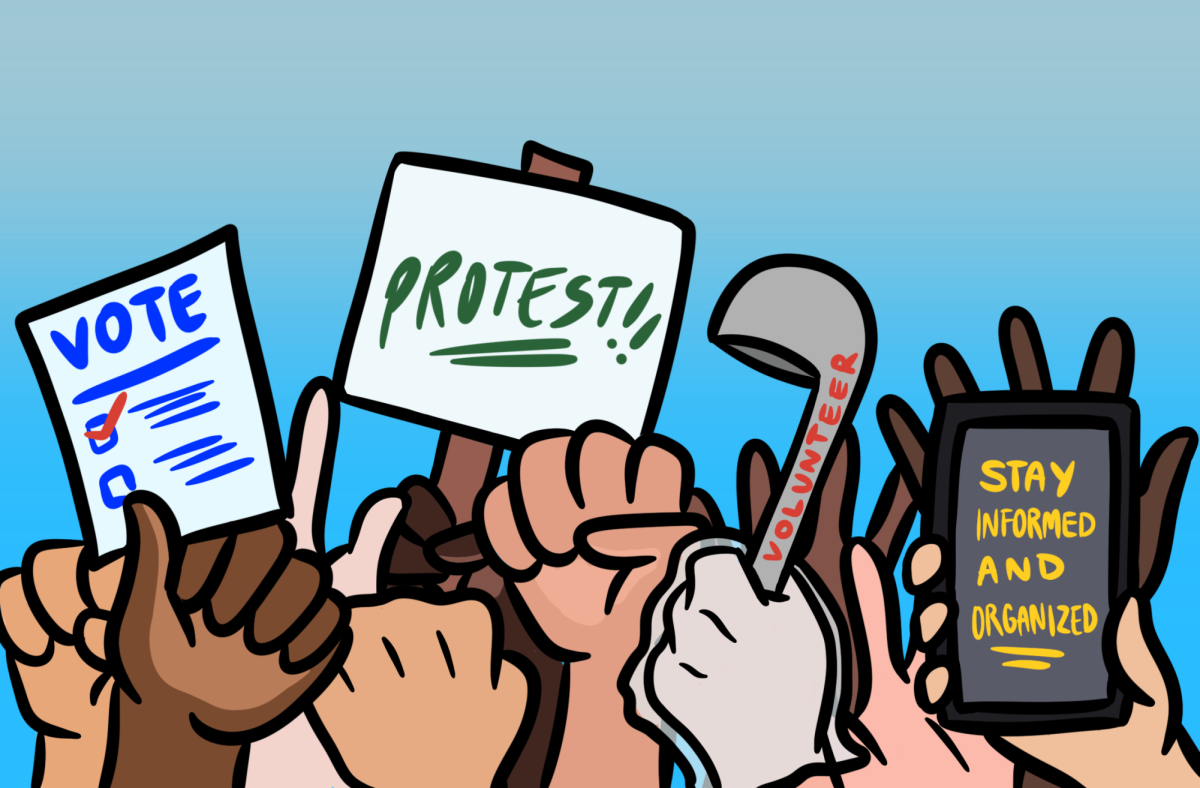As many Americans grapple with President-elect Donald Trump’s return to office in the coming year, the decimation of U.S. democracy is of widespread concern. But, before we mourn the progress and the future of younger generations, we must approach the fight against democratic backsliding with ambition and urgency.
The importance of civic engagement cannot be overstated: it is the most powerful tool Americans will yield to combat the bigotry and repression facing the nation in the upcoming four years. Social movements were pivotal during Trump’s first term, and we cannot discount their value moving forward.
The Women’s March on Washington and revival of the #MeToo movement set the stage for the 2018 midterm elections, in which an unprecedented number of women were on the ballot. Voters rejected the blatantly misogynistic rhetoric spewed by the Trump administration to elect a record high number of women into Congress, but the influence of social movements such as these date back far earlier than Trump’s first presidency.
The March on Washington for Jobs and Freedom pushed the Kennedy administration to meet with civil rights leaders, followed by the passing of The Civil Rights Act of 1964. Almost a decade later, the U.S. anti-war movement culminated in the 1971 Mayday protest that shut down Washington D.C. for three days and pressured President Richard Nixon to withdraw forces from Vietnam and end the draft.
The precedent for protesting the U.S. government and policies is extensive, but not the only option. For those who believe there is little to no hope in impacting tangible progress in Washington, there is still potential for change without help from the federal government.
Trump’s administration currently presents a unique danger to two of the largest issues on the ballot for young voters, environmental justice and Palestinian liberation. Project 2025 and its newly released but equally sinister chapter, Project Esther are policies drafted by the Heritage Foundation for the Trump administration, detailing a dark future for both. Trump denies ties to either plan, but having 140 former Trump staffers as co-authors suggests otherwise. Either way, a second Trump presidency will require substantial effort at the civic level to combat these threats.
Millions of Americans have spent the past year protesting Israel’s attack on Gaza, with particular outrage expressed by students on college campuses across the nation. The Biden administration has sent billions in aid to Israel since the genocide in Gaza began, and Trump’s history of support for Israel is extremely worrying for Palestinians.
With this, the need for Americans to continue the pro-Palestine movement is more important than ever. The Boycott, Divest, Sanction movement has gained significant traction in the past year and applied effective nonviolent pressure to American institutions of all types. In May, Sacramento State became the first California public university to divest from Israel. In September, Portland, Maine became the fourth US city to divest from companies doing business with Israel. These systemic changes hold a promise of progress, despite the lack of urgency from a vast majority of US politicians.
Trump’s threatened rollbacks on climate protections are extremely concerning, but much can be done without government intervention. Since 2012, 350.org has pushed more than 1,300 institutions to divest from fossil fuels, initiated an investigation into Exxon, and delayed multiple pipelines in the United States.
Efforts from grassroots organizations such as these are pivotal in mitigating the harm done by elected officials. Although the benefit of support from the federal government is undeniable, its lack is not a reason to give up all hope for change. Involvement at the civic level will not be enough to prevent all harm, but collective action may be the difference between the bad and the worst regarding Trump’s second presidency.
At the local level, communities must unite to protect one another. If the 2024 term resembles that of 2016, government assistance programs will likely face substantial cuts. If so, mutual aid will become crucial for groups to support each other. Community organizing will also be essential in building and redistributing power. By staying involved, even without joining any particular movement or boycott, community members can maintain the integrity of their institutions to preserve social well-being.
The 2026 midterm elections present a beacon of hope for the United States, but voting is not where progress begins or ends. Involvement at every level of government through advocacy, lobbying and protesting will be most important in impacting change in the two years preceding midterms.
With the rights of women, LGBTQ+, immigrant and minority communities on the line, another four years of Trump promises to upend decades of hard-fought social change. Americans must be unified in their mobilization against the threats to human rights that the Trump administration poses and channel their anger and frustration into action. In the face of impending authoritarianism, civic engagement is more important now than ever.






